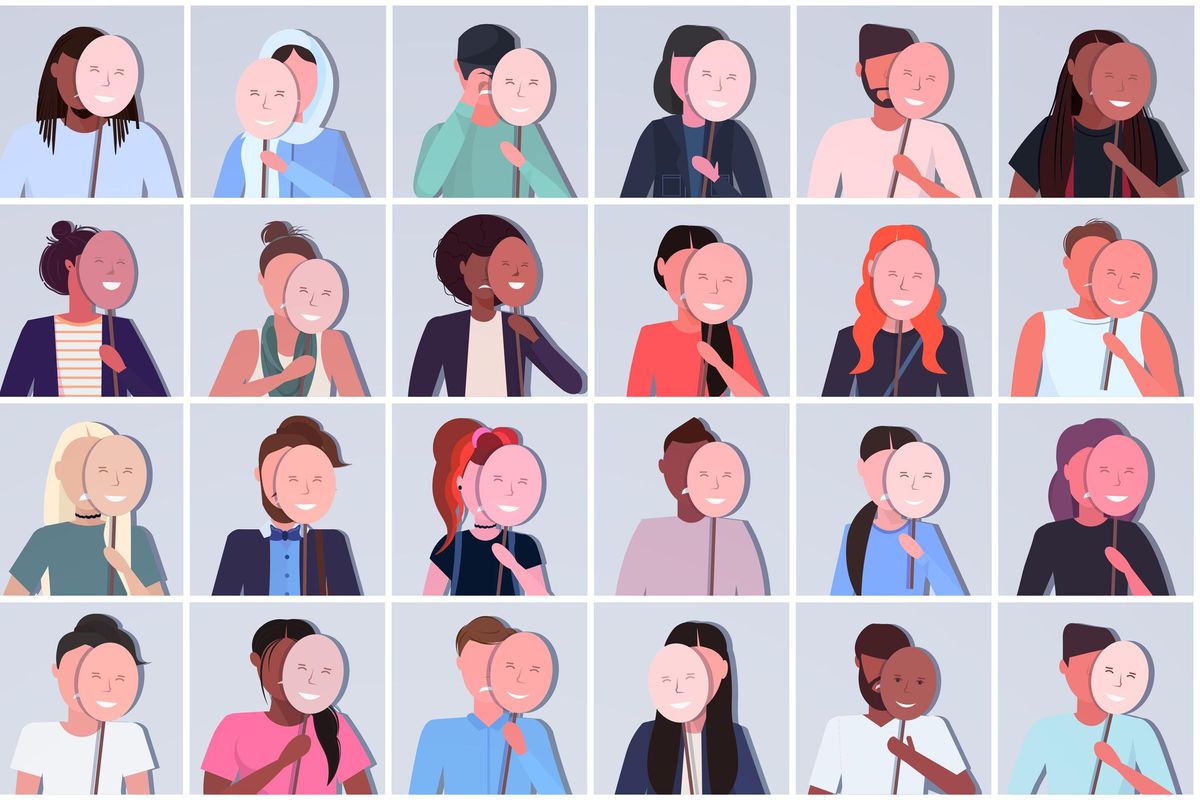
What Is Imposter Syndrome?
It’s not just you — Serena Williams and Tina Fey have had it, too
Dec 13, 2021
Jun 28, 2022
Self-Care & Mental Health
Nicole Audrey Spector holds a bachelor's degree in creative writing and is a writer, editor, and author with more than 20 years of experience. She's based in Los Angeles by way of Brooklyn. Her work has appeared in Vogue, the Atlantic, Vice, The New Yorker and more. She's a frequent contributor to NBC News and Publishers Weekly.
Her 2013 debut novel, "Fifty Shades of Dorian Gray" received laudatory blurbs from the likes of Fred Armisen and Ken Kalfus, and was published in the US, UK, France and Russia. Follow her on Twitter @NicoleSpector
Full BioLearn about our editorial policies

It’s not just you — Serena Williams and Tina Fey have had it, too
“What if I don’t deserve to be here? What if I just got lucky? What if everyone finds out I’m a fraud?”
These were the types of questions that raced through Angela Ficken’s mind when she first launched her private psychotherapy practice at the age of 28.
“I was trained by the best people and had four years of supervision before opening my own practice,” Ficken, 42, said. “But once I became ‘legitimate’ and people were actually paying me for my services, the self-doubt, anxiety and fear showed up quickly."
Working in a field where talking through and naming feelings is part of the job, Ficken quickly identified that she was experiencing imposter syndrome — a phenomenon that, according to a 2020 study in the Journal of General Internal Medicine, affects up to 82% of the population.
And it’s not just so-called “regular people” who deal with the blows of imposter syndrome. Famously successful people including Serena Williams, Tom Hanks and Maya Angelou, have described their struggles with feeling like a fraud or a con artist at some point during their impressive careers.
Coined back in 1978 by psychologists Pauline Rose Clance and Suzanne Imes, “imposter syndrome” has actually made its way into the dictionary and is defined as “anxiety or self-doubt that results from persistently undervaluing one’s competence and active role in achieving success, while falsely attributing one's accomplishments to luck or other external forces.”
“People with imposter syndrome tend to question their level of intellect and success,” said Dr. Sabrina Romanoff, clinical psychologist and professor at Yeshiva University.
Imposter syndrome generally flares up in social, educational and professional settings where there may be a degree of competitiveness in the air. People who have imposter syndrome tend to feel like they’re always falling short or doing a less-than-“perfect” job.
“If you have imposter syndrome, you carry the concern that you may constantly be ‘discovered’ as a fraud,” Romanoff said. “You also are likely to devalue your achievements, and attribute them to luck instead of your own hard work.”
Those dealing with imposter syndrome may also hold themselves up to impossibly high standards and to waver in their self-confidence as their self-doubt intensifies. Additionally, they tend to have great success in regard to school, jobs and opportunities — but end up in a vicious cycle where with personal achievements only feed their growing self-doubt.
“Instead of internalizing their successes, they use them as evidence that they are deceptive — which preserves self-doubt,” Romanoff said. “The paradox is that they are typically very intelligent and highly capable people, so this drive to compensate for a perceived deficit actually motivates them to be more successful — further continuing the cycle.”
Though anyone can experience imposter syndrome, Clance and Imes determined that high-achieving women were particularly susceptible to the complex. This remains true today, but it should be noted that the original study didn’t explore race and sexuality. Women of color and nonheterosexual women may be especially prone to imposter syndrome because they are especially marginalized.
“Imposter syndrome adversely affects women, women of color, and lesbian, bisexual and trans women because they are in more societally marginalized positions,” said Dr. Deborah J. Cohan, professor of sociology at the University of South Carolina-Beaufort.
Being in a marginalized group means that you likely have fewer role models in society who resemble you than your white, male colleagues. At the same time, you’re facing systemic racism, sexism and other “isms” that, centuries old, have yet to release their iron grip on society.
Traditionally, girls have been raised to safely occupy space in a boy’s risk-taking world, which, in a way, grooms them for imposter syndrome.
“If you go into a toy store, you see things for boys that are geared toward being adventurous,” said Cohan. “Products geared toward girls are more about looking pretty and serving others. The implicit messaging is that boys are supposed to take risks, but girls aren’t.”
Girls also tend to be raised to be perfectionistic — a key trait of imposter syndrome.
“Perfectionism, like imposter syndrome, is about being never good enough, of having to check off every single box and then any extra boxes skillfully and carefully, with no stone unturned,” Cohan said. “Boys and men don't face that same level of tyranny of perfectionism and as a result, they have it better. I think they can let go more and not beat themselves up or drag themselves down.”
We call it a “syndrome,” but this term is problematic because it suggests that women feeling like imposters are suffering some kind of internal delusion — when they’re actually experiencing the psychological repercussions of advancing in a society that was created by and designed for white men.
A recent article in Harvard Business Review, penned by Ruchika Tulshyan and Jodi-Ann Burey, made an in-depth argument against telling women they have imposter syndrome, noting that doing so “puts the blame on individuals, without accounting for the historical and cultural contexts that are foundational to how it manifests in both women of color and white women.”
If society is to blame for the problem, then it’s on society to fix it. The change can and should begin in each and every workplace that values women, starting with leadership, who, regardless of their gender, need to cultivate confidence in its female employees.
Imposter syndrome may be largely a societal pathology, but there are ways women themselves can keep it in check.
“To be successful as a woman, you have to break through the glass ceiling but you also have to address the sticky floor,” Meyer said. “So you have to ask yourself, What is holding you back? When do you experience the most self-doubt and why? What are the triggers?”
Women should also dispel the myth that total confidence is a destination they should reach in their career.
“If you want to be successful, you will be pushing up against edges and stretching yourself and you will not feel 100% confident,” Meyer said. “I try to teach women on campus to embrace being terrified and to say, ‘So what if I have imposter syndrome?’ Embrace the fear and don't let it stop you from acting. It's the hesitation that gets in the way.”